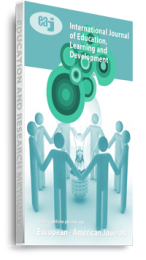The institutionalisation of educational change is not an easy feat to achieve even though change, no matter the aspect is inevitable. OLA College of Education, one the higher education institutions involved in TESSA activities in Ghana has been able to institutionalise the TESSA OER innovation despite challenges associated with the institutionalisation of educational change. This paper therefore investigated factors that facilitated and those that impeded the change process at its continuation phase, in the Ghanaian college of education. The illuminative case study design was used for this study and data was collected qualitatively using interviews, documentary analysis and observation. Seven participants, the principal of the college and six tutors involved in TESSA activities were purposively sampled from whom data was collected. Data generated were analysed thematically and the results presented using description of themes and sub-themes. The findings obtained revealed that factors such as leadership interest and support, established procedures and the existence of committed staff facilitated the continuation of the TESSA science OER. However, the introduction of another innovation during the continuation phase of the TESSA innovation hampered the institutionalisation efforts. A thorough study of the T-TEL innovation should therefore be done so as to incorporate TESSA science OER activities into it to enhance quality of teachers trained by the college.
Keywords: educational change; facilitating factors; institutionalization; impeding factors; TESSA science OER

